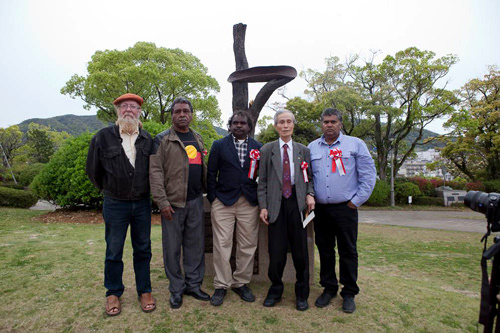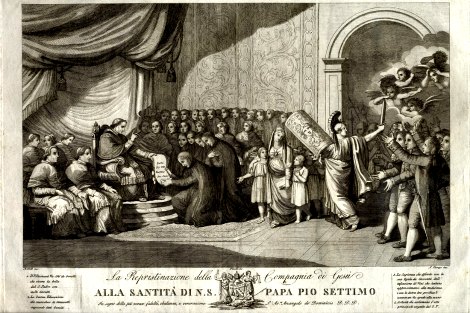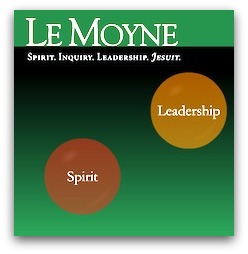Keywords: Feast Of St Ignatius Loyola
-

RELIGION
- Andrew Hamilton
- 30 July 2024
5 Comments
In an age marked by increasing tribalism, Ignatius Loyola offers a counterintuitive lens through which to examine the nature of human connection. Renowned as a strict disciplinarian, Loyola is often cast as a distant, austere figure. Yet, beneath his armor of religious rigor lies a nuanced and rich understanding of friendship.
READ MORE
-

RELIGION
- Andrew Hamilton
- 30 July 2020
7 Comments
Ordinarily the last two days of July would for me be occasions of celebration. July 30 is the International Day of Friendship and July 31 is the feast day of Ignatius Loyola, the founder of the Jesuits. This July, in Victoria, at least, it is hard to summon energy to celebrate. We are in a time of endurance.
READ MORE 
-

FAITH DOING JUSTICE
- James O'Brien
- 31 October 2019
6 Comments
The rise of the vegan movement challenges us to reflect ethically on food. Writing in the 16th century, Ignatius Loyola prompted his readers to practise reverence in the moment and gratitude for the gifts received when eating. For an age of food and drink on demand, heeding his prompts could help us to balance our inner and outer lives.
READ MORE 
-

RELIGION
- Frank Brennan
- 06 August 2018
How are we to honour the commitment to peace of these Japanese and Maralinga survivors of nuclear conflagrations unleashed maliciously or negligently last century? We need to renew our commitment to painstaking negotiation of international treaties and agreements designed to ensure peace and security for all, insisting on the dignity and human rights of all.
READ MORE
-

RELIGION
- Frank Brennan
- 01 August 2016
Inspired by the person Ignatius, inspired by the person Jesus, we are motivated to make a difference; we are passionate to seek justice for all, especially the poor and the marginalised; we are convinced that we can find God in all things, even in the Don Dale Detention Centre; we know that all persons are called to a deep interior freedom, even those prison guards with hardened hearts; we are convinced that the law of the Lord teaches us right from wrong and that the ways of the Lord inspire us to do and proclaim what is right and to denounce what is wrong, especially when the wrong is done by the powerful upon the powerless.
READ MORE
-

- Frank Brennan
- 03 August 2015
1 Comment
I am one of those Jesuits who sometimes has been perceived as not being sufficiently loyal to the church hierarchy. From time to time, people of good will have urged me to consider Ignatius' rules for thinking with the Church which are appended to his Spiritual Exercises. The stereotypical view of those rules is often summed up by quoting the first sentence of the 13th rule: 'To keep ourselves right in all things, we ought to hold fast to this principle: What I see as white, I would believe to be black if the hierarchical Church would thus determine it.' But life was not ever that simple, even in the time of Ignatius. Feast of St Ignatius homily by Frank Brennan
READ MORE
-

- Andrew Hamilton
- 30 July 2015
3 Comments
Ignatius of Loyola, whose feast day is on 31 July, is remembered for founding the Jesuits, for his Spiritual Exercises and for the effect Jesuits had on European history and in overseas missions. He was a man who made a difference. But during his life that reputation was not a done deal. One often overlooked event, more accurately an event that failed to happen, shaped decisively how he has come to be remembered.
READ MORE
-

AUSTRALIA
- Frank Brennan
- 07 August 2014
31 Comments
Everyone knows the Jesuits have had a rocky history. They were fabulously successful in educating the European elite for quite some time. But things went off the rails badly in the eighteenth century, and in 1773 Pope Clement XIV issued a decree to 'abolish and suppress the oft-mentioned Society'. Eventually his successor Pope Pius VII issued a papal bull restoring the Society, two hundred years ago this week.
READ MORE 
-

RELIGION
- Frank Brennan
- 27 September 2012
5 Comments
'We do not stay focused on a moribund, severed arm. Rather we remember that Francis with this arm always pointed towards Christ, and always embraced all before him, especially the poorest of the poor.' Fr Frank Brennan SJ's address at St Christopher's Cathedral, Canberra, for the visit of the Relic of St Francis Xavier.
READ MORE
-

RELIGION
- Frank Brennan
- 04 November 2010
15 Comments
Cardinal Pell, with whom I have voiced disagreement, preached superbly at the mass of thanksgiving after the canonisation of Mary MacKillop. 'She does not deter us from struggling to follow her.' As we wrestle with the common good, let's make a place for all our fellow citizens.
READ MORE
-

AUSTRALIA
- Chris Lowney
- 25 July 2007
1 Comment
Eric Shinseki was the highest ranking US military officer in the United States until he ran afoul of his boss, former US Defence Secretary Donald Rumsel. He had told a Congressional hearing that the US Army would more soldiers to Iraq than planned, to keep the peace Saddam Hussein's removal.
READ MORE 